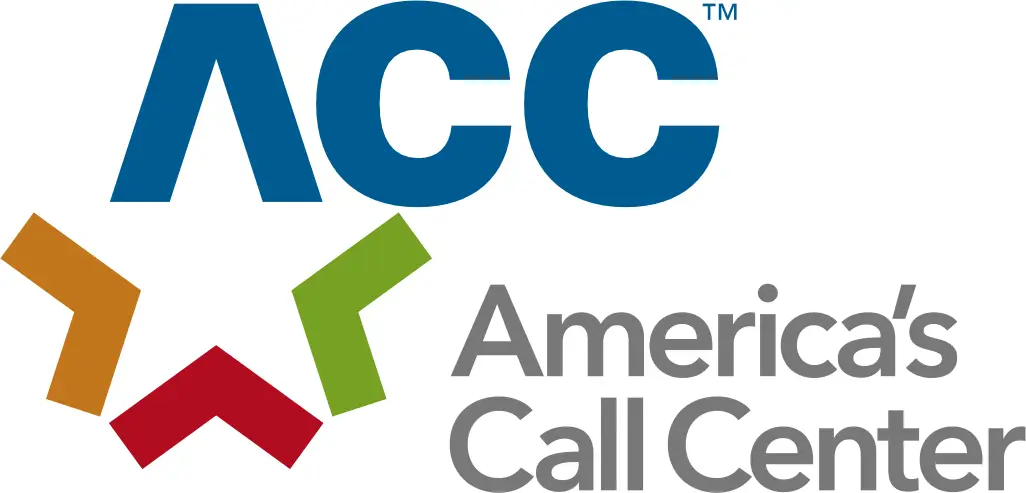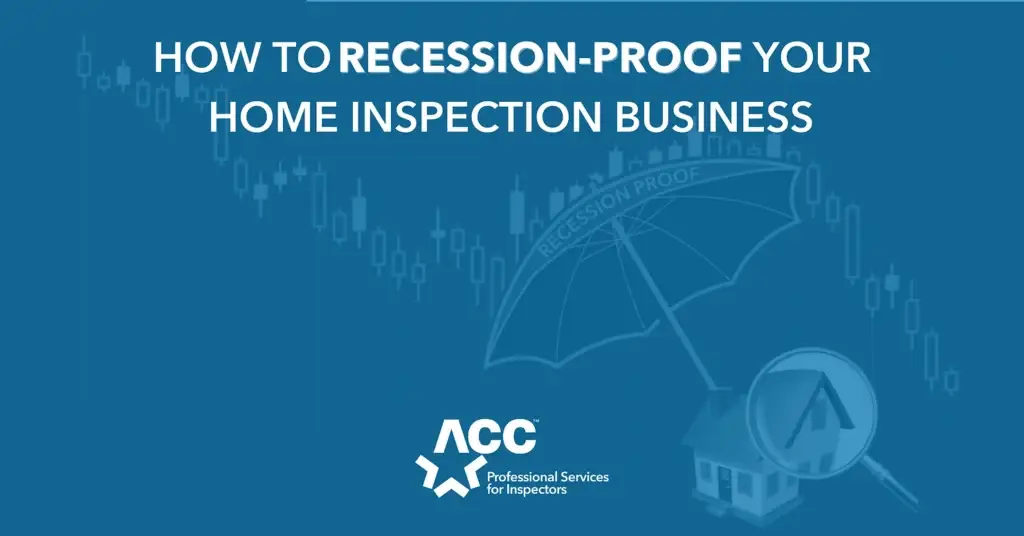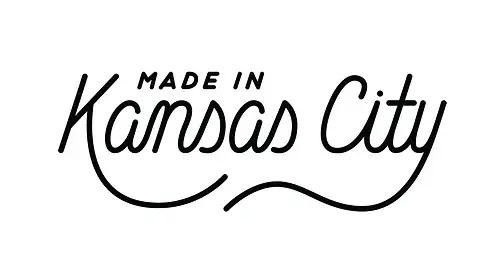Though there is some debate as to who actually said it, most of us, at one time or another, have heard the quote, “If you fail to plan, you are planning to fail.” For the home inspection business owner, there is little more important than this simple concept. Whether an inspector is just starting out – building a brand, determining pricing structures, establishing a website, launching marketing efforts, forming a customer base, and much more – or an established inspector who is looking to grow their two-inspector firm into a thriving, multi-inspector business with sustainability power and an eye on a future acquisition, both inspection business owners MUST have a plan for how to turn their vision of success, into an assured reality. Without that plan, well, you know.
THE STATE OF THE ECONOMY & OUR HOUSING MARKET
There’s a lot being said right now by all sorts of “experts” regarding our economy. And of course, there’s plenty of speculation on what will happen with the housing market, and the impacts we’ll ultimately feel on our home inspection industry. Let’s review the topline.
The economy: A recent poll from Reuters found that one in four economists believe the U.S. will experience a recession this year, with that number rising to 40% over the next 24 months. While a recession is far from inevitable, there are several reasons why economists are increasingly leaning in that direction.
America’s economy unexpectedly shrank in the first quarter of 2022, with our GDP declining at an annualized rate of 1.4% between January and March. The Federal Reserve has been steadily tightening its monetary policy to tame surging inflation. Which, as of this writing, hovers around 8.5% – the highest US inflation since 1981. One method for tightening monetary policy has been to increase interest rates, which the Fed anticipates raising six more times this year. After the announcement about future interest rate hikes from the Fed on April 22, 2022, the Dow fell about 980 points, or 2.8% – signaling that investors are more worried that an interest rate spike will slow consumer spending and the housing market, ushering in the next recession. Speaking of investors, they’re also jittery because of the war being waged in Ukraine. And rightly so. With the energy markets having to adjust to life without a supply of Russian oil while US gas and oil prices soar.
Our housing market: So far this year, the housing boom has continued from 2021, with home prices up over the past 12 months a staggering 19.3%. That’s impacting the available housing inventory, which is down 53% from pre-pandemic levels. However, rapidly increasing interest rates and inflated housing prices are beginning to drive more and more homebuyers out of the market – softening the home-buying frenzy. But maybe a bit too much.
Back in December, the typical American household would have to spend 24% of its monthly income to make a mortgage payment on the average-priced U.S. home. Today, that number is 31% – the highest reading since September 2007.
Few housing economists project a dreaded housing bubble this year, but most do feel a “correction” of sorts is coming – where sales will drop, and prices will follow in certain parts of the country.
PANIC IS FOR THE UNPREPARED
People. We tend to worry. Probably more than we should. Case in point: One in four economists believe the U.S. will experience a recession this year while 81% of adults said they think the U.S. economy is likely to experience a recession in 2022. The reality, like most things, is probably somewhere in the middle. We’ll see.
For inspection business owners, the possibility of an economic downturn is just another unfortunate bump in the road of being an entrepreneur. One potential reality that must be faced and dealt with – like so many others along the path to success, or downfall.
For any inspector, there are going to be great years for your business – years where you “feast” on the volume of business and the profits that positively impact your growth. Conversely, for some, there will be challenging years for your business – years of “famine,” where inspection volume is down, selling of ancillary services has declined, and business growth feels like ancient history.
A recession might happen. A downturn in the economy and the housing market might happen. But what separates the most successful inspection business owners from the rest is how they prepare for uncertainty, and certain difficulty. First, they don’t panic. They are equally as prepared for the feast as they are for the famine. They have a plan. So, no need to panic about failure – as any storm can be weathered.
FIVE STRATEGIES TO RECESSION-PROOF YOUR INSPECTION BUSINESS
While the following is by no means a comprehensive list, it does include some of the more important and impactful solutions for any inspection business owner looking to weather a down economy, a softening housing market, or even a full-blown recession.
1. Take a Build-to-Sell Approach
Not every home inspection business owner starts off with the intention of selling their company someday. Though many do. However, there are a lot of advantages to applying this mindset.
Very few inspectors we have met and worked with over the past 20+ years tell us they have no desire to grow their business – adding at least one or more inspectors along the way to increase profitability and gain more time back to do the things they want to do for themselves and their businesses. That’s why the majority of inspection business owners should be building and operating a “business brand” and not so much a “personal brand.” A personal brand is built around you, the inspector – your personality, your expertise, your lifestyle, and your interests. That’s fine, right up to the point when you bring on other inspectors who aren’t you. If you are your brand, then it becomes more difficult to sell in the services and expertise of your employees that aren’t you.
On the other hand, a business brand is built around an identity you create for your business. You’re still inextricably tied to the business, but not in a way that creates doubt in a customer if you’re not actually performing the work. It also doesn’t create an unnecessary barrier to the future sale of the business.
If you take a “build it to sell it” approach to your business, that means you are truly focused on building a successful brand that doesn’t revolve mostly around you. It means you understand your business, your brand, the customers you serve, and what niche you fill. You’ve stepped back far enough to understand what systems and processes you need to put in place to make your business run optimally. And if you’ve done all that, you’ll be more than prepared to weather any financial storm that’s thrown at you.
2. Don’t Dial Back Marketing. Dial it Up!
Marketing. It’s often the first thing to go when a business is looking to cut costs in an economic downturn. In the aftermath of the recession in 2008, ad spending in the U.S. dropped an average of 13%. This, despite the fact, that decades of studies have continuously revealed the advantages of maintaining or even increasing ad budgets during a weaker economy. Those advertisers that maintained or grew their ad spending actually increased sales and market share during a recession and afterward. The urge to trim on marketing when times are tough can be a strong one. Resist the urge. During an economic downturn, the noise level gets turned way down in our home inspection industry. This is the time to let your brand and message push the front of the line by gaining more awareness and ultimately gaining more market share. See it as an opportunity. Because it is. The cost of advertising often drops during a slower economy – creating a “buyer’s market” for an inspection business. Take advantage of cheaper rates and consider creating promotions that incorporate partial discounts on your inspection services that might appeal to those also on a tighter budget.
During an economic downturn, people will still be searching for inspectors to do home inspections and perform other ancillary services. So, it will be critical to keep your brand top-of-mind with your current customers while still marketing to new targets. You don’t have to spend a ton of money to do it – just make sure you do it.
3. Strengthen Your Customer Relationships
Your current customers. When things start to get a little worrisome in the inspection industry, a loyal customer base can be the one thing that stands between keeping the lights on and shutting the doors. While it’s always smart, strategic, and necessary to seek out new customers, it’s equally important – perhaps even more so during a down economy – to keep the ones you already have.
Now is the time to think about the customer experience. What can you be doing to make sure your current customers are feeling like your inspection business is the ONLY place to be when they require the services you provide? How can you boost referrals? Talk to them. Really focus on building loyalty with them.
Show your customers they’re a priority by adapting your services to really suit their needs better, as well as offering them incentives. To give loyalty a little boost, consider the after-sales service. Think about what more can you do to thank them for their business while gently reminding them why they should continue to support you over your competition.
4. Take Control of Your Cash and Give Yourself Some Credit
If you are an inspection business owner that doesn’t have a good handle on your cash flow, you’re not alone. Sadly, some don’t even know their numbers. So, is it any wonder that in a study by U.S. Bank, it was discovered that 82% of businesses fail because of cash flow issues? A lot of entrepreneurs conflate revenue with cash flow – not realizing that to grow and thrive, even during an economic downturn, it’s not so much about revenue, but profitability. Sure, you have to earn enough revenue to cover all your costs, but it’s how you think about profits throughout the lifetime of your business, and how they are applied to your vision of success that makes all the difference. This is your profit plan – a key ingredient to the larger financial plan.
Having a profit and financial plan, and being able to adhere to them, means you know your numbers right now, and are in an informed position to expand or contract depending on market conditions, and without jeopardizing the future stability of your inspection business. If you see there are likely some stormy waters ahead, like now, it’s not a bad idea to start building a cash reserve. Most business analysts advise on having at least six months’ worth of essential business expenses tucked away. For small business owners, that may sound like a lot. If so, then it’s probably time to get up close and personal with your business spending habits. Are there ways you can cut costs without sacrificing quality? Can you renegotiate contracts with vendors and suppliers? Identify strategic and nonstrategic spending. Where can you selectively trim costs to improve the return on operating expenses?
Finally, don’t wait until you are really in a cash crunch to look for additional financing. We are just now wrapping up an extended period in the U.S. of relatively “free money” from lenders. We all enjoyed the zero or next to zero interest rates while they existed, but that time has quickly passed. So, before lending standards tighten too much, secure new financing for your business. Even if you never touch it, it’s better to have it and not need it, than the other way around.
5. Refine & Strengthen Your Approach to Customer Experience Management (CXM)
Here are a few statistics to get you thinking about the state of customer service these days and the expectations of your average consumer:
- 80% of customers say the experience a company provides is just as important as its products or services – McKinsey & Company
- 70% of buying experiences are based on how the customer FEELS they are being treated – McKinsey & Company
- 67% of customers say they would definitely be willing to PAY MORE for a great customer experience – McKinsey & Company
- 51% of customers will never do business again with a company after just one negative experience – Forrester Research
- 33% of Americans say they will consider switching companies after just a SINGLE INSTANCE of poor service – American Express 2018 Customer Service Study
Most home inspection business owners understand the concept of providing great customer service and the benefits that come from its application. However, the customer experience – the perception of your customer on all of their interactions with your company – is a little harder to wrap your noodle around. Because it involves how your agents and clients perceive your brand from the moment they first interact with it, all the way through the inspection lifecycle process – including the final delivery of the report, that last follow-up email, and a thoughtful holiday card. That’s the “experience.” How you effectively manage that experience is what separates the average to good inspection businesses, from the truly exceptional.
And it ain’t easy! Because the inspection industry has been changing. A global pandemic and seismic changes in where (and how) people work, have all contributed to a massive rethinking of commerce and how people interact with businesses and brands. Add to that the challenges we’re currently facing, and it’s no wonder that the quality of customer service is down across the country. In fact, according to the American Customer Satisfaction Index (ACSI®), customer satisfaction in the US is at its lowest level in 15 years.
Experiencing a more than decade-long stagnation in customer satisfaction means opportunity! Take time to really think about the experience a customer has with your brand.
Ask yourself some of these questions:
- How often are your agents referring business to you? Has that been increasing over time or decreasing? Either way, do you know why?
- Does your website give the impression you will provide them with a great experience, or does it overwhelm them with details?
- When their call is answered after a few rings, does a friendly voice greet them, giving the time to answer all their questions about one of the biggest purchase decisions they may be making in their lives?
- Are your marketing materials friendly and engaging?
- Are you handling leads, offering your services, and booking inspections in a helpful, easy manner?
- Is handling special requests a non-issue?
- After the inspection, how would you describe the reaction of your customer?
- How are you addressing questions or concerns they may have?
What are you doing post-inspection to make sure the agent and client received the best possible experience?
Customer Experience Management requires a fair amount of thought and effort. However, with most businesses placing too little importance and applying too little attention on developing a solid approach, it leaves plenty of opportunity for those inspection business owners, willing to go the extra mile, to gobble up market share – growing and thriving, even during down times.


